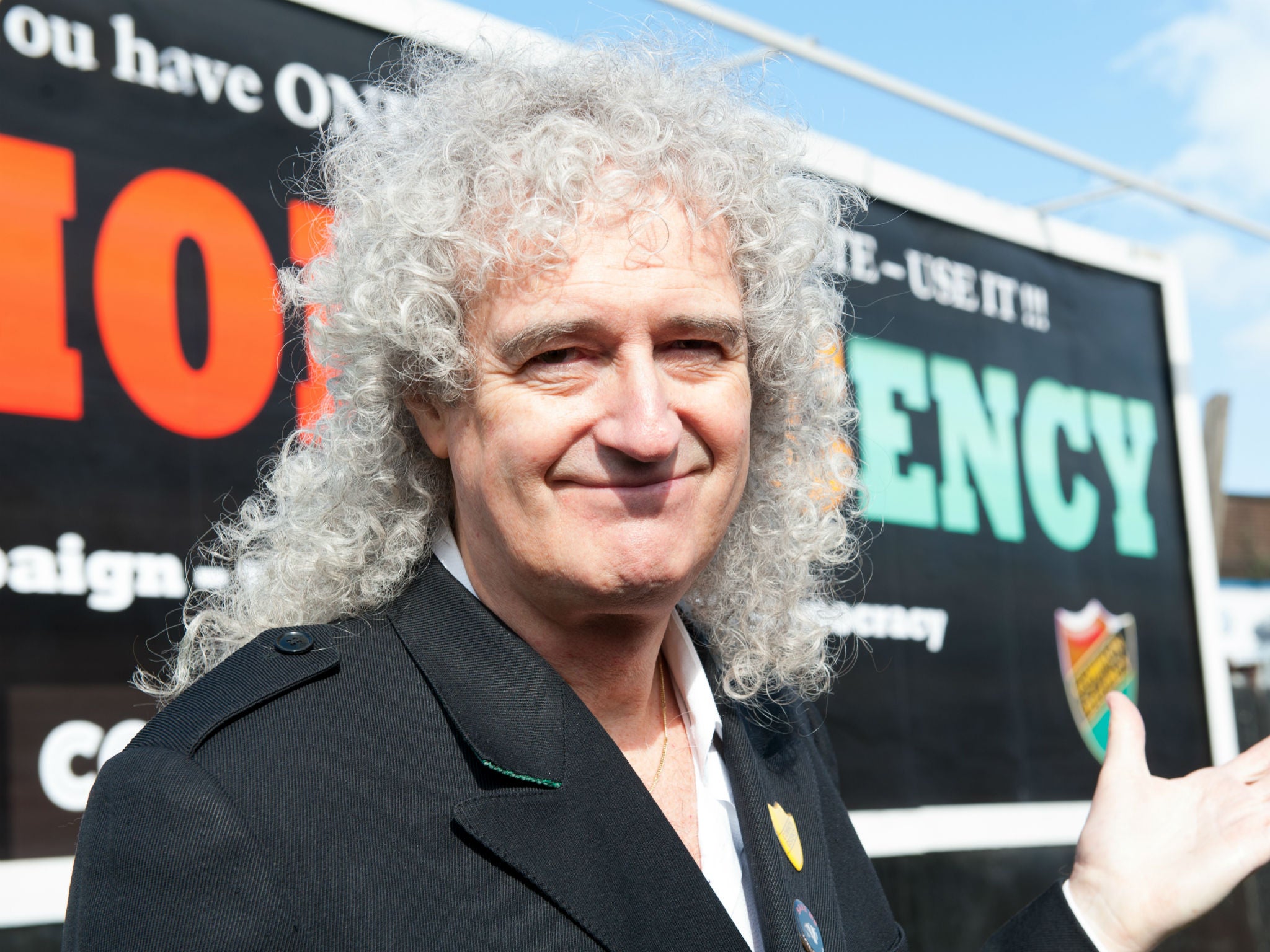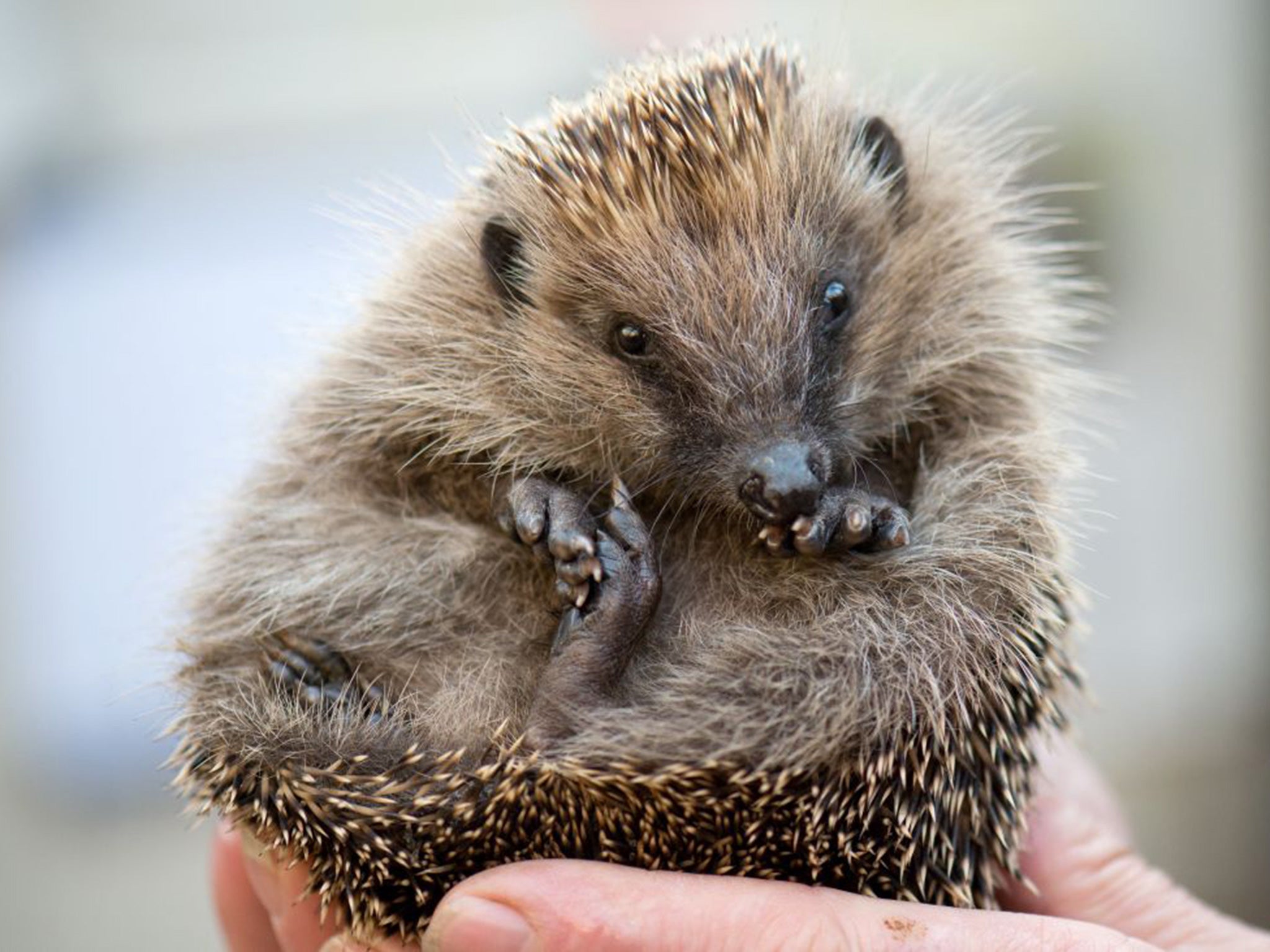Queen's Brian May leads race to protect Britain's disappearing hedgehogs
'By listing them as a protected species, we can ensure human progress does not lead to inevitable doom for hogs'

Your support helps us to tell the story
From reproductive rights to climate change to Big Tech, The Independent is on the ground when the story is developing. Whether it's investigating the financials of Elon Musk's pro-Trump PAC or producing our latest documentary, 'The A Word', which shines a light on the American women fighting for reproductive rights, we know how important it is to parse out the facts from the messaging.
At such a critical moment in US history, we need reporters on the ground. Your donation allows us to keep sending journalists to speak to both sides of the story.
The Independent is trusted by Americans across the entire political spectrum. And unlike many other quality news outlets, we choose not to lock Americans out of our reporting and analysis with paywalls. We believe quality journalism should be available to everyone, paid for by those who can afford it.
Your support makes all the difference.Queen guitarist Brian May is fighting to have one of Britain's favourite wildlife species officially protected – in a race to prevent its extinction.
At the start of “hedgehog awareness week”, campaigners are calling on the government to give the small mammals a special status that would limit activities that disturb or destroy their habitats.
Nearly 19,000 people so far have signed a petition on the government website calling for official protection.

An initiative called Amazing Grace is urging wildlife lovers not only to sign the petition but also to create the sorts of spaces in their gardens that will allow hedgehogs to thrive.
Numbers of the garden mammals, voted Britain's national species, are declining fast - from 30m in the 1950s to fewer than 1m now. Populations have more than halved in rural areas since 2000, and trends show a continuing decline of about 5 per cent a year.
At this rate they may be threatened with extinction by 2025, according to the Amazing Grace website, which is backed by the British Hedgehog Preservation Society and Dr May’s Save Me trust.
While some people blame badgers for eating hogs – causing Twitter rows over the BBC’s Countryfile coverage – most conservationists say the drop is down to habitat loss, caused by:
- building projects
- increased road traffic
- gardens being concreted over and more fenced in
- and, most of all, the intensification of agriculture, with a loss of hedgerows and permanent grasslands, larger fields, and the use of pesticides
In an open letter asking people to back the petition, Dr May wrote: “As more land is cleared for development and intensive farming, these valuable habitats are lost, fragmented and made inhospitable to both hedgehogs and the invertebrates on which they feed.
“Now is the time to protect the hedgehogs. By listing them as a protected species, we can limit the habitat degradation that often coincides with development and ensure that human progress does not lead to inevitable doom for our country’s hedgehogs.
"Let us, together, send a message to our government and let them know that the hedgehog is a species worthy of saving, worthy of accommodating in our plans for road, building and community developments, and worthy of being granted protected species status.”
A survey last month found sightings fell last year compared with the year before. Only nine per cent of people reported seeing hedgehogs in their gardens regularly, down from 12 per cent in 2016.
Gracethehedgehog.co.uk says: “Given unrestricted range, hedgehogs typically travel 1-2km or more in a night when they forage for food. As developments are built, roads paved and fences erected, this range is reduced. Each of these obstacles forms an impenetrable barrier which can isolate different populations and sub-populations and make each more vulnerable to further decline and eventual population extirpation.”
But the animals are loved by many people: nearly 50,000 householders have signed up to an initiative called Hedgehog Street to encourage their neighbours in urban areas to make their gardens suitable and report sightings.
Join our commenting forum
Join thought-provoking conversations, follow other Independent readers and see their replies
Comments